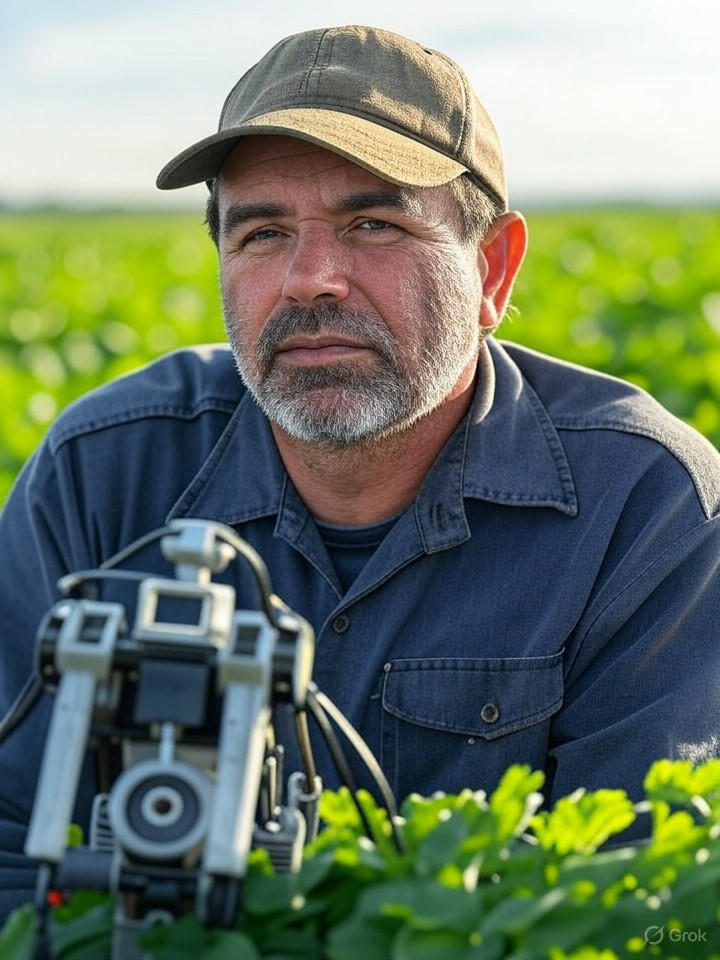In the heart of California’s Central Valley, a profound transformation is underway as farmers increasingly integrate cutting-edge artificial intelligence and robotics into their operations. This technological revolution directly addresses critical challenges such as labor shortages, aims to significantly enhance crop yields, and champions the overarching goal of sustainable farming practices through highly precise tasks like automated weeding and meticulous crop monitoring.
While these advanced systems, central to the burgeoning field of AI in agriculture, are proving invaluable, they still encounter limitations, particularly in fully replicating the nuanced intuitive judgment inherent to human farm workers. Despite this ongoing developmental gap, the strategic adoption of these technologies is seen as an imperative step towards securing global food security and ensuring sufficient provisions for a burgeoning world population projected to reach ten billion by mid-century.
The momentum behind this shift is accelerating rapidly, as evidenced by international showcases like the 2025 World FIRA in France, where prototypes of autonomous tractors and sophisticated precision agriculture robots captured significant attention. Growers consistently report that while robotic dexterity may not yet rival human capability in all aspects, the machines excel in unwavering consistency and tireless endurance, operating around the clock without fatigue. This relentless operational capacity is especially crucial for regions grappling with persistent labor deficits, allowing for optimized irrigation and targeted pesticide application, critical components of modern agricultural robotics.
Market analyses further underscore an anticipation of explosive growth within the AI in agriculture sector, with projections indicating substantial expansion by 2025. Emerging trends include advanced drone applications for aerial surveying and innovative robotic harvesting solutions. Companies such as Ecorobotix, a notable Swiss startup, are at the forefront, developing highly specialized AI robots designed to target weeds with pinpoint accuracy, a breakthrough poised to dramatically reduce herbicide use and safeguard vital soil health, thereby bolstering sustainable agriculture.
Despite the undeniable promise, significant barriers to widespread adoption persist, particularly for smaller agricultural operations. High initial capital expenditures and the imperative for specialized technical expertise often deter smallholder farmers, a group responsible for producing an estimated 80% of the world’s food supply. Furthermore, the urgent need to mitigate chemical overuse, which is eroding valuable topsoil at alarming rates, highlights why advanced tools like AI robots offer a crucial lifeline for the future of California agriculture.
Progress is also being made through deeper integration with other transformative technologies, including the Internet of Things (IoT) and blockchain, which enable autonomous equipment to perform tasks with unprecedented accuracy, such as robotic fruit pickers precisely assessing ripeness using infrared sensors. Beyond field operations, successful pilot programs in vertical farming demonstrate how AI optimizes indoor environments, achieving yields up to 400 times greater per acre than conventional methods, while governmental initiatives, like India’s ‘Kisan e-Mitra’ AI chatbot, provide vital information and support to farmers.
While some critics raise concerns about potential worker displacement resulting from an over-reliance on technology, proponents counter that these innovations concurrently generate new roles in data analytics, machine maintenance, and system management. Despite ethical considerations like data privacy that accompany these AI trends, the emphasis remains firmly on developing eco-friendly solutions. Ultimately, while AI and agricultural robotics may not yet serve as perfect substitutes for human farmers, their continuous evolution is unequivocally essential for scaling global food production amid escalating pressures, thereby forging a more resilient and tech-forward agricultural future.






Leave a Reply